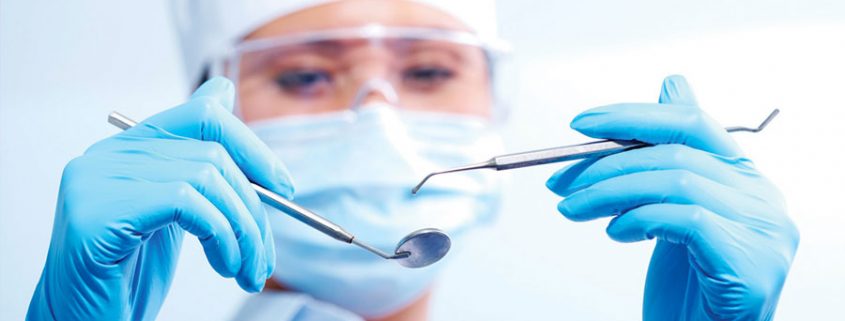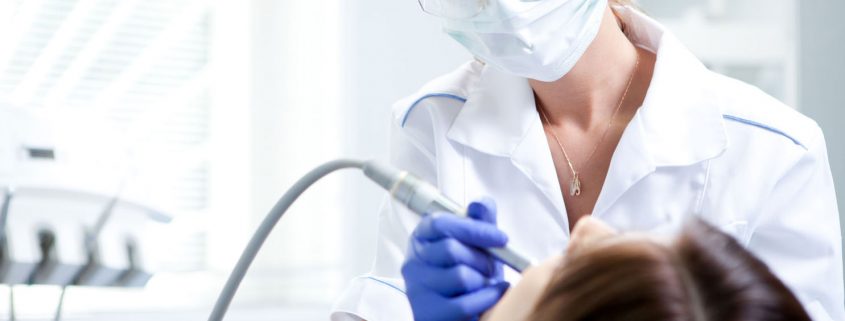Our dental office in New Westminster has compiled a list of top questions regarding Oral Surgery. If you need immediate treatment or questions, please don’t hesitate to contact our dental clinic at: (604) 544-0894
1. Who will need an oral surgery?
Oral surgical procedures involve the incision, excision, or reflection of tissue that exposes the normally sterile areas of the oral cavity. Examples are biopsy, periodontal surgery, apical surgery, implant surgery, and surgical extractions of teeth (removal of erupted or nonerupted tooth requiring elevation of the mucoperiosteal flap, removal of bone or section of tooth, and suturing if needed).
2. Who will need periodontal surgery?
Periodontal or “gum” surgery is needed when conservative non-surgical treatments are ineffective in completely eradicating the periodontal disease. Luckily, periodontal surgery is a very simple and extremely effective technique to treat advanced periodontal problems.
3. What is apical surgery?
Apical surgery is considered a standard oral surgical procedure. It is often the last resort to surgically maintain a tooth with a periapical lesion that cannot be managed with conventional endodontic (re-)treatment. The main goal of apical surgery is to prevent bacterial leakage from the root-canal system into the periradicular tissues by placing a tight root-end filling following root-end resection. A major step in apical surgery is to identify possible leakage areas at the cut root face and subsequently to ensure adequate root-end filling. Only a tight and persistent apical obturation will allow periapical healing with good long-term prognosis.
4. When do I need a surgical extraction of teeth?
If a more volatile tooth has yet to grow in, however, your dentist needs to remove gum tissue or bone in order to extract it. This is called a surgical extraction and requires stitches to close the site so that it can heal properly. If a tooth breaks off during the procedure, for instance, it may need to be taken out in pieces. Wisdom teeth often face surgical extraction because they are usually impacted, meaning they are not completely erupted into the mouth. This condition requires cutting through bone and tissue. Removing severely broken down teeth, root tips or teeth with long-curved roots are other examples of surgical extractions. Then there are times when the bone around a tooth has become dense, resulting in the need for surgical treatment.
5. What will happen during my procedure?
Your oral surgeon/dentist will explain how they plan to perform your surgery. Without having to get into too many specifics, you will know where your incision is being made, and any other details about what the procedure entails and what the goal is.
6. Do I need to be sedated during my oral surgery instead of the local anesthesia?
A dentist will request in-depth past medical history before a patient can be sedated. Not all patients are able to be sedated. Patients who are anxious, nervous, or scared of dental visits may request sedation for a variety of dental care from a regular cleaning to wisdom teeth extractions. However, there may be other techniques to help a patient receive the necessary dental treatment in a safe and comfortable manner.
7. How long will the procedure take?
It depends on which oral surgery that your dentist consulted you to take. It could be from one hour to four hours or more. Ask your dentist for more details to suit your schedule.
8. How long is the recovery?
It depends on the kind of oral surgery. Wisdom teeth extraction usually takes a few days to one week for the pain and swelling to subside. The gums can take up to a month to completely heal. Your dentist will recommend a soft diet for a few days and provide detailed recovery instructions, such as how to deal with discomfort and swelling. Dental implants also require some healing time and this varies from patient to patient and procedure to procedure.
9. What food should I eat and avoid after surgery?
For 2 days after surgery, drink liquids and eat soft foods only. Such as milkshakes, eggnog, yogurt, cooked cereals, cottage cheese, smooth soups, mashed potatoes, refried beans, ice cream, pudding, fruit smoothies and protein shakes. On day 3 after surgery, eat soft foods that do not require much chewing, such as macaroni and cheese, cooked noodles, soft-boiled /scrambled/ poached eggs and soft sandwiches. Avoid tough or crunchy foods, such as pizza, rice, popcorn, and hamburger. Avoid spicy and acidic foods. Most patients may resume their normal diet 7 days after surgery.
10. What should not you do after oral surgery?
- Do not apply heat to your face, unless your surgeon told you to do so.
- Heat can increase swelling.
- Do not use straws, suck on anything, or smoke.
- These actions cause negative pressure in your mouth, which can dislodge the blood clot that is keeping your wound closed, causing more bleeding, and delay your healing.
- Do not blow your nose. Wipe instead. If you need to sneeze, do so with your mouth open.



